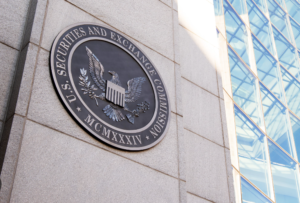$KOSPI $BTC $ETH
#SouthKorea #InterestRates #MonetaryPolicy #BOK #Economy #Markets #Inflation #Crypto #RateCuts #GlobalEconomy #StockMarket #CentralBanks
South Korea’s central bank, the Bank of Korea (BOK), surprised global markets with an unexpected move to reduce its benchmark lending rates in its first back-to-back cuts since the 2008 financial crisis. The decision came as a shock to most economists, including those surveyed by Reuters, who had largely anticipated the BOK to keep rates steady amid a fraught global economic landscape. This policy pivot underscores the urgency in addressing mounting economic pressures within the country, including tepid growth signals and rising external uncertainties stemming from global monetary tightening and geopolitical tensions. Furthermore, it signals the central bank’s prioritization of domestic economic stability over inflation concerns, a delicate balancing act in today’s challenging macroeconomic environment.
The consecutive rate cuts reflect concerns over the pace of economic growth in South Korea, which has been faltering over the past quarters. Domestic demand remains weak, compounded by softening exports as a result of a continued slowdown in China, South Korea’s largest trading partner. Exports of key products, such as semiconductors, which are crucial to the South Korean economy, have seen significant declines. The BOK appears to be betting that easing monetary conditions might provide struggling sectors with some breathing room, bolstering investment and consumption. However, the move adds further complexity to ongoing inflationary challenges, as the lower borrowing costs could potentially stoke inflationary pressures in the medium term.
Financial markets reacted sharply following the policy announcement. The South Korean stock market, represented by the KOSPI index, saw an initial surge as investors priced in the potential for easier financial conditions to support corporate earnings. However, the currency market told a more cautious story. The South Korean won weakened against the US dollar, reflecting concerns over interest rate differentials as the U.S. Federal Reserve continues to maintain a hawkish stance. Meanwhile, the impact extended far beyond South Korea. Rising speculation that other Asian central banks might follow suit sent ripples through global financial markets, reigniting conversations about the possibility of further rate easing in Japan, China, and other parts of the region.
In the cryptocurrency space, the lower lending rates have provided a mixed narrative. On one hand, cheaper credit might mean increased speculative activity and liquidity flowing into risk assets like Bitcoin ($BTC) and Ethereum ($ETH). On the other hand, macroeconomic uncertainties could cap enthusiasm for highly speculative plays. If South Korea’s pivot is an early signal of a wave of monetary easing in Asia, it could prove to be a tailwind for risk-on assets in the near term. However, cryptos and equity markets alike remain on edge, as investors analyze whether the BOK’s decision was made out of proactive policy maneuvering or reactive responses to deep-seated structural challenges.











Comments are closed.